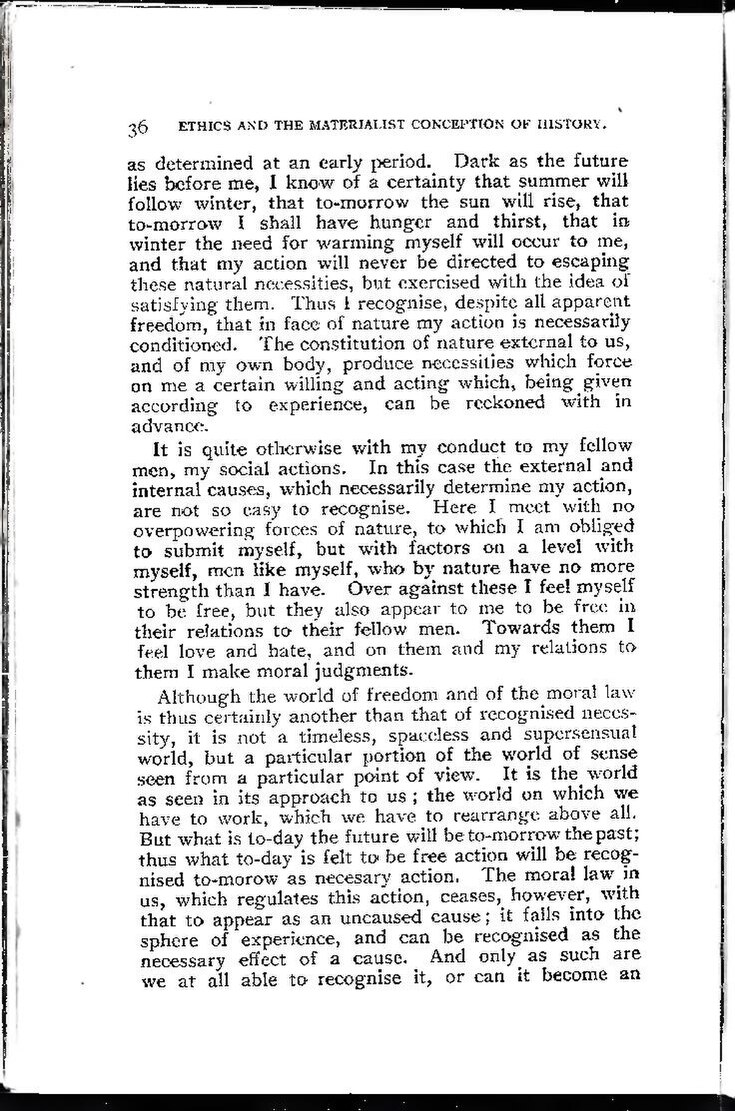as determined at an early period. Dark as the future lies before me, I know of a certainty that summer will follow winter, that to-morrow the sun will rise, that to-morrow I shall have hunger and thirst, that in winter the need for warming myself will occur to me, and that my action will never be directed to escaping these natural necessities, but exercised with the idea of satisfying them. Thus I recognise, despite all apparent freedom, that in face of nature my action is necessarily conditioned. The constitution of nature external to us, and of my own body, produce necessities which force on me a certain willing and acting which, being given according to experience, can be reckoned with in advance.
It is quite otherwise with my conduct to my fellow men, my social actions. In this case the external and internal causes, which necessarily determine my action, are not so easy to recognise. Here I meet with no overpowering forces of nature, to which I am obliged to submit myself, but with factors on a level with myself, men like myself, who by nature have no more strength than I have. Over against these I feel myself to be free, but they also appear to me to be free in their relations to their fellow men. Towards them I feel love and hate, and on them and my relations to them I make moral judgments.
Although the world of freedom and of the moral law is thus certainly another than that of recognised necessity, it is not a timeless, spaceless and supersensual world, but a particular portion of the world of sense seen from a particular point of view. It is the world as seen in its approach to us ; the world on which we have to work, which we have to rearrange above all. But what is to-day the future will be to-morrow the past; thus what to-day is felt to be free action will be recognised to-morow as necesary action. The moral law in us, which regulates this action, ceases, however, with that to appear as an uncaused cause; it falls into the sphere of experience, and can be recognised as the necessary effect of a cause. And only as such are we at all able to recognise it, or can it become an
